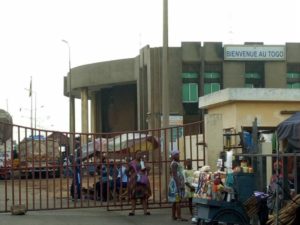West African journalists call on governments to open land borders

Journalists attending the International Festival of Freedom of Expression and the Press (FILEP) have called on West African governments to open all land borders closed since the outbreak of the COVID-19 pandemic to ease the suffering of most of their populations.
In a resolution at the end of the 9th Edition of the Festival Friday November 12, 2021, in Ouagadougou, Burkina Faso, the journalists said the closure of the land borders has deepened inequality and it’s mostly the poor who depend on trading activities across the borders who are suffering.
The journalists said the closure of the borders has worsened economic inequality for the poor, as they are compelled to pay bribes to corrupt officials to be able to engage in economic activities across the borders for survival.
When the COVID-19 pandemic broke out, as part of measures to limit its spread among populations, most countries of the world closed all their borders, land, sea and air. However, most have reopened their air and sea borders, but have left the land borders closed.
According to a paper published by the European Centre for Development Policy Management (ECDPM), a large share of intra-Africa trade is informal, small-scale, cross-border and unrecorded.
Citing some studies, it said these studies even suggest that the value of informal cross-border trade (ICBT) in many countries may exceed that of formal trade with their neighbours.
“One estimate suggests that ICBT plays a part in providing livelihoods to some 43 per cent of sub-Saharan Africa’s population, including the vulnerable, especially women (AWDF 2017). ICBT plays a key role in terms of food security: in West Africa, for instance, ICBT in staple foods represents around 30 per cent of the total regional trade (Bouët et al. 2020). ICBT can take place through official border posts, as well as along porous, insecure borders, highlighting the variety of forms that ICBT can take,” it added.
The FILEP, a bi-annual event held in the Burkinabe capital, Ouagadougou highlights the need for freedom of expression and the media, particularly it looks at the conditions and circumstances in which journalists in Africa work and promotes the safety of journalists.
Participants from some 10 countries of the world attended the three-day Festival which would be ended with the Norbert Zongo Investigative Journalism Awards ceremony, in honour of the Burkinabe investigative journalist, Norbert Zongo, who was killed with three others he was travelling with in 1998.
By Emmanuel K. Dogbevi, in Ouagadougou, Burkina Faso
Copyright ©2021 by NewsBridge Africa
All rights reserved. This article or any portion thereof may not be reproduced or used in any manner whatsoever without the express written permission of the publisher except for the use of brief quotations in reviews.
